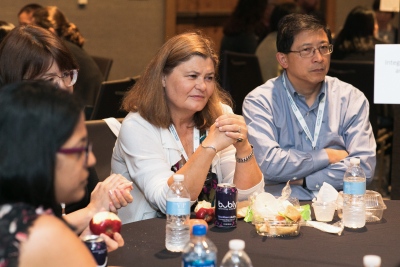2022 Round Table Sessions




2022 Round Table Session include the following topics from which participants may choose during registration:
Practical Approaches to Enhanced Accessibility of Molecular Diagnostics in Community and Low Resource Settings
Opportunities and Challenges in Adoption of New Technologies in Molecular Diagnostics
Harmonizing Data Sharing for Omics in Adult and Pediatric Tumors
Validation and Implementation of Testing for Cancer Predisposition Syndromes in Hematologic and Solid Tumors
Best Practices for Genomic-guided Immunotherapy for Cancer
Best Practices and Clinical Utility for Circulating Tumor DNA Testing
Applications of Advanced Genomic Technologies in Constitutional Testing
Detection of Gene Rearrangements by Next Generation Sequencing (NGS) and Optical Genome Mapping
Automation of Complex Genomic Variant Reporting from NGS and Microarray Technologies
Pre-analytical Determinants in Molecular Diagnostics
Clinical Utility of MRD Monitoring for Leukemia
Best Practices and Clinical Utility of Genomic Testing for Somatic Overgrowth and Vascular Anomalies
Clinical Implementation of Pharmacogenomics
Clinical Implementation of Whole Genome Sequencing
Best Practices in the Classification and Testing of Multiple Myeloma
Molecular vs. Technology-based Classification of Hematologic Malignancies

